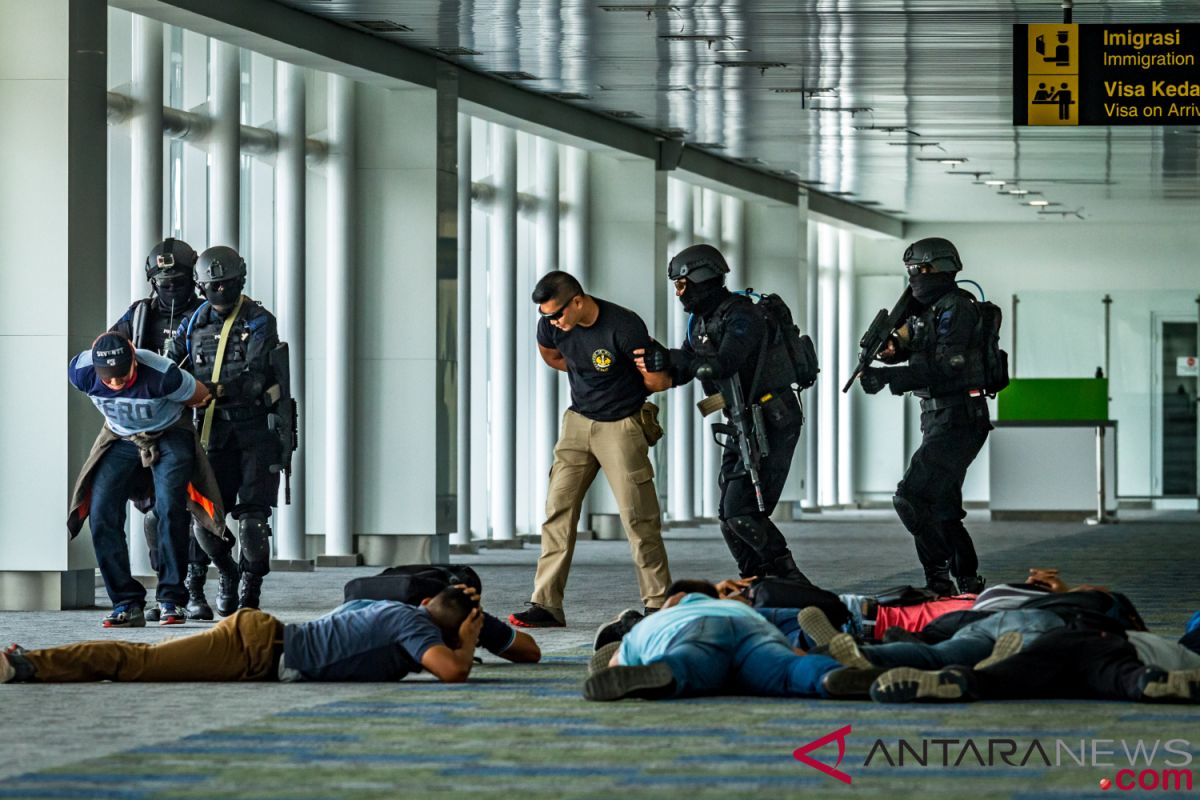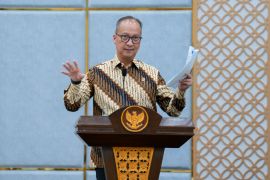His basic argument is that Islam is "rahmatan lil alamin," or blessing for the universe, and the acts of terrorists do not represent Islam at all. Instead, the deeds of perpetrators have indeed tarnished the image of Islam. Hence, they are, in fact, the real enemy of Islam.
What Ryacudu emphasized while speaking to journalists on the sidelines of a seminar titled "Ensuring Regional Stability Through Cooperation on Counter Terrorism" held as part of the 2018 Indo Defense and Forum in Jakarta on Thursday supported the message of the Arab League leaders.
During their 29th summit in Dhahran, Saudi Arabia, last April, the Arab League leaders, including King Salman bin Abdulaziz Al Saud of Saudi Arabia, had obviously rejected all endeavors to link terrorism to Islam.
This clear message was then inserted into the Dhahran Declaration in which the Arab League leaders attending the Dhahran Summit called on the international community to prepare an acceptable definition on terrorism through the United Nations mechanism.
They argued that terrorism has no religion. It possesses neither homeland nor identity. In the Dhahran Declaration, the Arab League leaders acknowledged the fact that terrorist groups were capitalizing on the rapid development of various social media platforms to spread their views.
The perpetrators also exploited various social media platforms for influencing the hearts and minds of internet users, particularly youngsters, so that they can someday be recruited to serve as suicide bombers and campaigners of radicalism and terrorism.
Those who have distorted Islam by linking their symbols, acts, and thoughts of radicalism and terrorism to this peace-loving faith, such as the ISIS, should be stopped through solid multilateral cooperation.
In halting the spread of terrorism and countering the threats of this crime against humanity, a collaboration involving all elements of community members within a nation is also deemed necessary.
Indonesian Defense Minister Ryacudu highlighted the importance of the people`s participation in the war on terrorism and should not be ignored by taking into account its important contribution through the deployment of satellites and drones to detect the movements of suspected terrorists.
Indonesia is not free from the real threats of terrorism. Despite the fact that it has the world`s biggest Muslim population and is widely known as a staunch supporter of the Palestinian people`s unfinished struggle for independence, it shares the unfortunate fate of other countries.
Indonesia has also become the target of attacks by terrorists since 2000, and the spread of radicalism and terrorism continue to threaten the country until now. Last May, a church in the East Java city of Surabaya was also attacked.
Two years ago, the ISIS supporters in Indonesia had launched a suicide bombing and shooting attack in Jakarta on January 14, 2016, which led to the deaths of eight people, including three innocent civilians.
The incident has added to the list of deadly assaults carried out by terrorist cells in Indonesia. From 2000 to 2012, more than a dozen attacks took place in the capital city, including the Australian embassy bombing on September 9, 2004, and the JW Marriott and Ritz-Carlton hotel bombings on July 17, 2009.
Since the deadly terrorist attacks on the World Trade Center twin tower in New York and the Pentagon in Washington D.C. on September 11, 2001, which triggered the US-led invasions on Afghanistan and Iraq, Islamophobia has grown stronger.
Since then, the fear and hatred or prejudice against the Islamic religion or Muslims seem to have gotten worse in the United States and several other parts of the world as is partly observed from the use of pejorative words in media reports and textbooks, such as "Islamist terrorism" and "radical Islamist."
John C. Zimmerman (2004:223) defined the word "Islamist," as everybody who wishes to lead a country by adopting the sharia (Islamic law). Thus, the definition that Zimmerman uttered in his article titled "Sayyid Qutb`s Influence on the 11 September Attacks" (2004:222-252) is a clear evidence of the vulnerability of Islam being linked to radicalism and terrorism.
In fact, through the true history of Islam that Prophet Muhammad (peace be upon him) and his companions practiced, Islam is absolutely a peace-loving and anti-violent faith, but it admits to the existence of war as part of the fact of human life (Abdalati, 1980:143).
However, Hammudah Abdalati (1980:143) argued that the war is not the goal of Islam and character of Muslims. Instead, the justifiable war is the last resort, and it will be opted, with so many strict conditions, if all endeavors to create peace and prevent war have failed.
Like the root of its word, Islam is indeed peace, and those embracing it are indeed peace lovers. Hence, linking Islam to acts of terrorism can be perceived as an evil intention and absolutely erroneous view.
Editing by Bustanuddin
Reporter: Rahmad Nasution
Editor: Heru Purwanto
Copyright © ANTARA 2018











